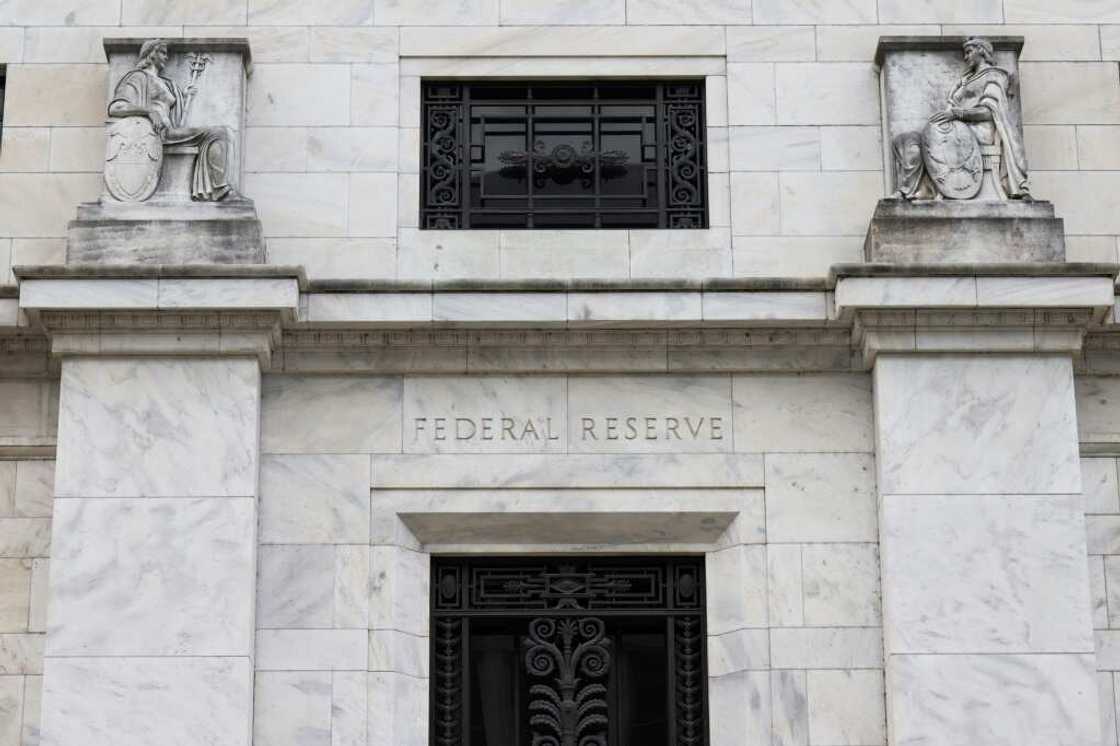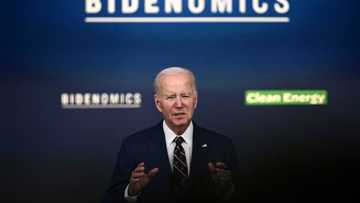US Fed 'within striking distance' of inflation target: official

Source: AFP
The US Federal Reserve is "within striking distance" of reaching its long-term inflation target and could begin cutting interest rates this year, a senior official said Tuesday.
"I am becoming more confident that we are within striking distance of achieving a sustainable level of two percent PCE inflation," Fed Governor Christopher Waller said at a virtual event, referring to the Fed's favored inflation gauge.
He added that recent data has made him more certain than he has been since 2021 that inflation is on the right path.
Members of the Fed's rate-setting Federal Open Market Committee (FOMC) recently voted to hold interest rates at a 22-year high, and penciled in up to three rate cuts for this year, citing progress against inflation.
The personal consumption expenditures (PCE) price index -- the Fed's favored inflation measure -- fell to an annual rate of 2.6 percent in November, while economic growth and job creation have shown signs of slowing.
"I believe policy is set properly," Waller said. "It is restrictive and should continue to put downward pressure on demand to allow us to continue to see moderate inflation readings."
"As long as inflation doesn't rebound and stay elevated, I believe the FOMC will be able to lower the target range for the federal funds rate this year," he continued.
He added that when the time comes, interest rates "can and should be lowered methodically and carefully," in a less rapid way than the Fed has done previously.
Futures traders have assigned a probability of close to 98 percent that the Fed will vote to hold interest rates steady later this month, and a probability of more than 65 percent that it will begin cutting rates in March, according to CME Group data.
Tapering 'this year'
The Fed embarked on a policy of so-called "quantitative easing" during the Covid-19 pandemic, swelling the US central bank's balance sheet to almost $9 trillion in a bid to support the economy through economic turmoil unleashed by the virus.
Since rolling back the policy in 2022, the Fed has steadily reduced its holdings to around $7.7 trillion.
In recent months, analysts have been attempting to predict when it would begin "tapering," or slowing down, the reduction in the size of its balance sheet.
Waller indicated Tuesday that tapering was on the cards in the not-too-distant future.
"I would say sometime this year would be a reasonable thing to start thinking about," he said.
Waller also added he did not see the current attacks by Yemen's Huthi rebels on commercial and military ships in the Red Sea posing a big inflationary concern to the US economy.
"There are alternative routes," he said.
PAY ATTENTION: Donate to Legit Charity on Patreon. Your support matters!
Source: AFP




